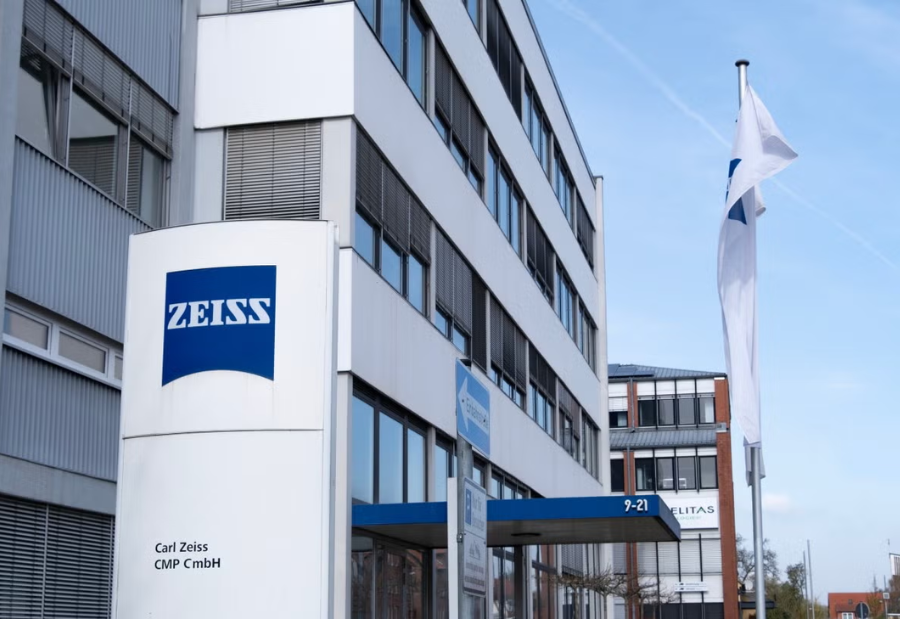Data now plays a more important role in organizations than ever before as artificial intelligence (AI) develops at a rate never seen before.
The complexity and scope of today’s data ecosystems necessitate a deeper, more strategic engagement from engineers, even while huge language models like Claude 3.7 and others can create code and automate many technical processes.
Remarkably, data-centric global capability centers (GCCs) are assisting in the central governance and transformation of enormous data resources.
With their well-established automation centers of excellence (CoEs), GCCs are in a good position to spearhead the adoption of system-based guidelines and frameworks that guarantee efficient data governance, according to analysts from EY India.
Many GCC countries now serve as “data custodians and stewards,” according to Kunal Ghatak, partner, global business services, EY India.
The industry as a whole shares this reliance on data. One firm that is going through a major transition is ZEISS Group India, which is a member of the Carl ZEISS Group and operates in the areas of medical technology, vision care, industrial quality solutions (IQS), microscopy, and optics.
“We are in a transformation phase where we are evolving into a completely data-driven organisation,” said Anupam Chaturvedi, head of ZEISS digital partners India, in an interview with AIM.
In November 2024, this German leader in optical and optoelectronics opened its GCC in Bengaluru, and it is currently working to become an entirely data-driven company.
According to the corporation, its goal is to consolidate its data landscape into a single information source so that all organizational levels may make well-informed decisions.
India as the Digital Nerve Centre
Acknowledging India’s vast talent pool and scalable workforce, ZEISS has greatly increased its presence in the area.
“ZEISS saw that there is an availability of talent here in India, and we can easily scale. In many areas where you find almost a year to source somebody in Europe, you can easily get it in a couple of months here in India,” Prakash Kumar, head of corporate IT – ZEISS global capability center India, told AIM.
Because of its agility, ZEISS has been able to speed platform development, cloud excellence, and data engineering delivery.
Important corporate platforms including Microsoft, SAP, and Salesforce are now serviced and operated by ZEISS from India.
Because of its agility, ZEISS has been able to speed platform development, cloud excellence, and data engineering delivery.
Important corporate platforms including Microsoft, SAP, and Salesforce are now serviced and operated by ZEISS from India.
What other players are doing?
The process of consolidating data from India is also being led by a number of GCC countries.
One important component of Walmart’s worldwide tech strategy is Walmart worldwide Tech India, which uses artificial intelligence (AI) and sophisticated data analytics to drive innovation in e-commerce, supply chain management, and retail. Similar to this, Citi’s worldwide Services Center in India plays a crucial role in facilitating customer service, worldwide IT operations, and—most importantly—data-driven decision-making throughout the bank’s network.
Josh Everett, CEO of Zinnia India, also emphasized the need of data interpretation in an interview with AIM, particularly when comparing insurance and aerospace. This contributes to giving the industry a new viewpoint.
Enterprise Data Platform & Cloud Excellence in Bengaluru
Aiming to house 80% of its worldwide data in a single environment, ZEISS India is concurrently developing a complete corporate data platform.
Research and development as well as strategic decision-making are supported by this unified, cloud-based platform, especially in delicate domains like medical technology.
The platform facilitates both compliance and innovation by guaranteeing that data is well-structured, securely managed, and accessible around-the-clock.
A large portion of the platform’s development and continuing operations, including a specialized Cloud Excellence Center in Bengaluru, are managed from India, according to Kumar.
Guarded AI Adoption and Responsible Governance
Kumar said that the business has created ZEISS GPT, a proprietary, safe AI solution, as an alternative to depending on outside resources like Microsoft’s or OpenAI’s GPT models. No data leaves the company’s ecosystem thanks to ZEISS GPT, which was developed as an internal wrapper over GPT technology.
Developing a strong governance mechanism was the main goal of the first deployment. These included platform usage rules, centralized control by the digital team, and processes for classifying data (internal, public, and confidential). The system makes sure AI is applied morally and in accordance with internal and external laws.
At the moment, ZEISS India is also testing Microsoft Copilot and GPT+ in India to see how they affect productivity and efficiency.
The goal of these trials is to empower all employees, not just those in digital and IT, as part of a broader AI enablement plan.
AI is being introduced at both ends of the spectrum, according to Chaturvedi, from sales and marketing to HR and finance: in strategic use cases at the top and in routine operations like email writing and content creation at the bottom.
Hiring and Data Literacy
ZEISS is investing in creating a robust data culture in addition to technology. This entails educating staff, raising awareness of data quality, and implementing control at the point of input, which is before data ever gets to source systems like Salesforce or SAP.
ZEISS India is continually improving its technological and functional skills in the meantime. Employing qualified developers, engineers, and system configurators is the main goal on the technological front.
Additionally, there is a tremendous drive to develop security knowledge, as seen by the large number of hires in this field. Particularly in network technologies like software defined wide area networks (SD-WAN), infrastructure operations are growing.
Additionally, the business is hiring for important platforms like Salesforce, which is causing a spike in lateral hiring to bring in seasoned workers.
Upcoming ZEISS Facility in Devanahalli
As part of its data-driven and technology-first strategy, ZEISS is building a cutting-edge manufacturing plant in Devenahalli, Bengaluru, which is scheduled to open by the end of the following year.
Kumar highlighted that the facility is designed to function as a global manufacturing hub, with a capacity to handle 95% of exports. “With minimal reliance on manual labour, the facility will be built around intelligent automation,” Kumar said.
Also read: Viksit Workforce for a Viksit Bharat
Do Follow: The Mainstream formerly known as CIO News LinkedIn Account | The Mainstream formerly known as CIO News Facebook | The Mainstream formerly known as CIO News Youtube | The Mainstream formerly known as CIO News Twitter |The Mainstream formerly known as CIO News Whatsapp Channel | The Mainstream formerly known as CIO News Instagram
About us:
The Mainstream formerly known as CIO News is a premier platform dedicated to delivering latest news, updates, and insights from the tech industry. With its strong foundation of intellectual property and thought leadership, the platform is well-positioned to stay ahead of the curve and lead conversations about how technology shapes our world. From its early days as CIO News to its rebranding as The Mainstream on November 28, 2024, it has been expanding its global reach, targeting key markets in the Middle East & Africa, ASEAN, the USA, and the UK. The Mainstream is a vision to put technology at the center of every conversation, inspiring professionals and organizations to embrace the future of tech.




